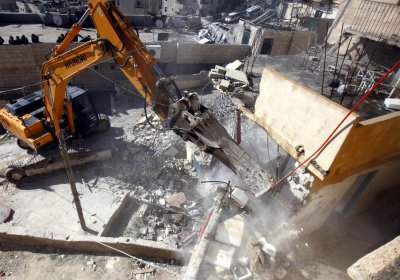There is one city in the world the indigenous people, who make up a third of the population, are officially classified by the authorities as having permanent residency, a legal status normally granted to migrants.
As non-citizens, Palestinians legal status in East Jerusalem is legally inferior to that of Jewish residents.
East Jerusalem, which was occupied by the Israeli army in the 1967 war and still contains refugee camps of survivors of the 1948 ethnic cleansing of large parts of Palestine, known as Al Nakba, bears the marks of an apartheid regime.
Guy Gillor
Nothing is more exciting that a field trip when you are a schoolchild; a temporary escape from the classroom to a field or a forest, enjoying (hopefully) the sunshine and the outdoors.
Growing up in Israel, the only downside to the whole experience was the talks. Every so often (too often, if you ask kids as sugared-up as we were), we would all have to sit down and hear a long explanation from a guide or a teacher, about the trees, flowers, rocks and the occasional heroic war story of the Israeli army.
This years global uprisings remind us how infectious the revolutionary spirit can be. In recent weeks, a social movement within Israel has sprung to life in an almost spontaneous manner.
A small housing protest that started on July 14 has swept hundreds of thousands of people into protest across the country.
As in many other countries, people in Israel face rapidly rising living costs and the privatisation of public assets.
Israel once saw itself as a welfare state (though its policies have been designed to benefit mainly the Jewish population since its inception).

